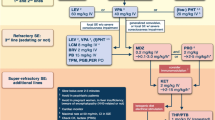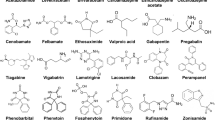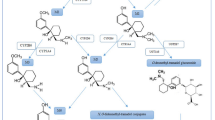Abstract
Refractory status epilepticus (RSE) poses significant challenge, with a variety of novel therapeutics employed. Our goal was to evaluate the effectiveness of N-methyl d-aspartate (NMDA) receptor antagonists in the control of RSE. We performed a systematic review of all the literature, with all articles pulled from MEDLINE, BIOSIS, EMBASE, Global Health, HealthStar, Scopus, Cochrane Library, the International Clinical Trials Registry Platform (inception to September 2013), reference lists of relevant articles, and gray literature. Two reviewers independently identified all manuscripts pertaining to the administration of NMDA receptor antagonists in humans for the purpose of controlling refractory seizures. Secondary outcome of adverse NMDA antagonist effects and patient outcome was assessed. Two reviewers independently extracted data including population characteristics, treatment characteristics, and outcomes. The strength of evidence was adjudicated using both the Oxford and GRADE methodology. Our search strategy produced a total of 759 citations. Twenty-three articles, 16 manuscripts, and seven meeting proceedings, were considered for the review with all utilizing ketamine for seizure control. Only three studies were prospective studies. Fifteen and nine studies pertained to adults and pediatrics, respectively. Across all studies, of the 110 adult patients described, ketamine was attributed to electroencephalogram seizure response in 56.5 %, with a 63.5 % response in the 52 pediatric patients described. Adverse events related to ketamine were rare. Outcomes were poorly documented in the majority of the studies. There currently exists Oxford level 4, GRADE C evidence to support the use of ketamine for refractory seizures in the adult and pediatric populations. Further prospective study of early ketamine administration is warranted.

Similar content being viewed by others
References
Brophy GM, Bell R, Claassen J, Alldredge B, Bleck TP, Glauser T, et al. Guidelines for the evaluation and management of status epilepticus. Neurocrit Care. 2012;17(1):3–23.
Claassan J, Silbergleit R, Weingart SD, Smith WD. Emergency neurological life support. Neurocrit Care. 2012;17(Suppl. 1):S73–8.
Hunter G, Young B. Status epilepticus: a review, with emphasis on refractory cases. Can J Neurol Sci. 2012;39(2):157–69.
Trinka E, Hofler J, Zerbs A. Causes of status epilepticus. Epilepsia. 2012;53(Suppl. 4):127–38.
Deeb TZ, Maguire J, Moss SJ. Possible alterations in GABAA receptor signaling that underlie benzodiazepine-resistant seizures. Epilepsia. 2012;53(Suppl. 9):79–88.
Feng HJ, Mathews GC, Kao C, Macdonald RL. Alterations of GABA A-receptor function and allosteric modulation during development of status epilepticus. J Neurophysiol. 2008;99(3):1285–93.
Loscher W. Mechanisms of drug resistance in status epilepticus. Epilepsia. 2007;48(Suppl. 8):74–7.
Loscher W, Potscha H. Drug resistance in brain disease and the role of drug efflux transporters. Nat Rev Neurosci. 2005;6(8):591–602.
Rizzi M, Caccia S, Guiso G, Richichi C, Gorter JA, Aronica E, et al. Limbic seizures induce P-glycoprotein in rodent brain: functional implications for pharmacoresistance. J Neurosci. 2002;22(14):5833–9.
Fujikawa DG. Prolonged seizure and cellular injury: understanding the connection. Epilepsy Behav. 2005;7(Suppl. 3):S3–11.
Singh D, Kelly K, Rana S, Valeriano J. Use of ketamine in treating refractory status epilepticus. Epilepsia. 2009;50(Suppl. 11):63.
Svoronos A, Kilbride RD, Mendoza L, Szaflarski JP, Carpenter A, Claassan J, et al. Non-traditional therapies for prolonged refractory status epilepticus: a multicenter review. Epilepsia. 2011;12(Suppl. 1):3.211.
Rosati A, L’Erario M, Ilvento L, Pisano T, Mirable L, Guerrini R. An ongoing open-lable uncontrolled study of the efficacy and safety of ketamine in children with refractory status epilepticus. Epilepsia. 2013;54(Suppl. 3):17.
Bleck TP, Quigg MS, Nathan BR, Smith TL, Kapur J. Electroencephalographic effects of ketamine treatment for refractory status epilepticus. Epilepsia. 2002;43(Suppl. 7):282.
Gaspard N, Foreman B, Judd LM, Brenton JN, Nathan BR, McCoy BM, et al. Intravenous ketamine for the treatment of refractory status epilepticus: a retrospective multicenter review. Epilepsia. 2013;54(8):1498–503.
Hsieh CY, Sung PS, Tsai JJ, Hwang CW. Terminating prolonged refractory status epilepticus using ketamine. Clin Neuropharmacol. 2010;33(3):165–7.
Kofke WA, Bloom MJ, Van Cott A, Brenner RP. Electrographic tachyphylaxis to etomidate and ketamine used for refractory status epilepticus controlled with isoflurane. J Neurosurg Anesthesiol. 1997;9(3):269–72.
Kramer AH. Early ketamine to treat refractory status epilepticus. Neurocrit Care. 2012;16:299–305.
Kramer U, Shorer Z, Ben-Zeev B, Lerman-Sagie T, Goldberg-Stern H, Lahat E. Severe refractory status epilepticus owing to presumed encephalitis. J Child Neurol. 2005;20:184–7.
Mewasingh LD, Sekhara T, Aeby A, Christiaens FJC, Dan B. Oral ketamine in paediatric non-convulsive status epilepticus. Seizure. 2003;12(7):483–9.
Rosati A, Erario LM, Ilvento L, Checci C, Pisano T, Mirable L. Efficacy and safety of ketamine in refractory status epilepticus in children. Neurology. 2012;79(24):2355–8.
Gosselin-Lefebvre S, Rabinstein A, Rossetti A, Savard M. Ketamine usefulness in refractory status epilepticus: a retrospective multicenter study. Can J Neurol Sci. 2013;40(3 (Suppl. 1)):S31.
Al-Otaibi AD, McCoy B, Cortez M, Hutchison JS, Hahn CS. The use of ketamine in refractory status epilepticus. Can J Neurol Sci. 2010;37(3 (Suppl. 1)):S69.
Andrade C, Franca S, Sampaio M, Ribeiro A, Oliveira JM, Ribeiro JAM, et al. Successful use of ketamine in pediatric super-refractory status epilepticus–case report. Epilepsia. 2012;53(Suppl. 5):98.
Kravljanac R, Nikolic LJ, Djuric M, Jovic N, Jankovic B. Treatment of status epilepsticus in children: 15-year single center experience. Acta Pediatrica. 2010;99(Suppl. 462):107.
Pruss H, Holtkamp M. Ketamine successfully terminate refractory status epilepticus. Epilepsy Res. 2008;82(2–3):219–22.
Walker MC, Howard RS, Smith SJ, Miller DH, Shorvon SD, Hirsch SD. Diagnosis and treatment of status epilepticus on a neurological intensive care unit. QJM. 1996;89(12):913–20.
Robakis TK, Hirsch LJ. Literature review, case report, and expert discussion on prolonged refractory status epilepticus. Neurocrit Care. 2006;4(1):35–46.
Sheth RD, Gidal BE. Refractory status epilepticus: response to ketamine. Neurology. 1998;51(6):1765–6.
Synowiec AS, Singh DS, Yenugadhati V, Valereriano JP, Schramke CJ, Kelly KM. Ketamine use in the treatment of refractory status epilepticus. Epilepsy Res. 2013;105(1–2):183–8.
Ubogu EE, Sagar SM, Lerner AJ, Maddux BN, Suarez JI, Werz MA. Ketamine for refractory status epilepticus: a case of possible ketamine-induced neurotoxicity. Epilepsy Behav. 2003;4(1):70–5.
Yeh PS, Shen HN, Chen TY. Oral ketamine controlled refractory status epilepticus in an elderly patient. Seizure. 2011;20(9):723–6.
Zeiler FA, Kaufmann AM, Gillman LM, West M, Silvaggio J. Ketamine for medically refractory status epilepticus after elective aneurysm clipping. Neurocrit Care. 2013;19(1):119–24.
Higgins JPT, Green S, eds. Cochrane handbook for systematic reviews of interventions Version 5.1.0. http://www.handbook.cochrane.org. Accessed 25 Oct 2013.
Moher D, Liberati A, Tetzlaff J, Altman DG, Group P. Preferred reporting items for systematic reviews and meta-analysis: the PRISMA statement. Ann Intern Med. 2009;151(4):264–9.
Phillips B, Ball C, Sackett D, Straus S, Haynes B, Dawes M. Oxford Centre for evidence-based medicine levels of evidence. Version 2009. http://www.cebm.net/?o=1025. Accessed Oct 2013.
Guyatt GH, Oxman AD, Vist G, Kunz R, Falck-Ytter Y, Alonso-Coello P, et al. Rating quality of evidence and strength of recommendations GRADE: an emerging consensus on rating quality of evidence and strength of recommendations. BMJ. 2008;336(7650):924–6.
Guyatt GH, Oxman AD, Kunz R, Vist GE, Falck-Ytter Y, Schünemann HJ, et al. Rating quality of evidence and strength of recommendations: what is “quality of evidence” and why is it important to clinicians? BMJ. 2008;336(7651):995–8.
Schünemann HJ, Oxman AD, Brozek J, Glasziou P, Jaeschke R, Vist GE, et al. Grading quality of evidence and strength of recommendations for diagnostic tests and strategies. BMJ. 2008;336(7653):1106–10.
Guyatt GH, Oxman AD, Kunz R, Jaeschke R, Helfand M, Liberati A, et al. Rating quality of evidence and strength of recommendations: Incorporating considerations of resources use into grading recommendations. BMJ. 2008;336(7654):1170–3.
Guyatt GH, Oxman AD, Kunz R, Falck-Ytter Y, Vist GE, Liberati A, et al. Rating quality of evidence and strength of recommendations: going from evidence to recommendations. BMJ. 2008;336(7652):1049–51.
Jaeschke R, Guyatt GH, Dellinger P, Schünemann H, Levy MM, Kunz R, et al. Use of GRADE grid to reach decisions on clinical practice guidelines when consensus is elusive. BMJ. 2008;337:a744.
Claassan J, Hirsch LJ, Emerson RG, Bates J, Thompson TB, Mayer SA. Continuous EEG monitoring and midazolam infusion for refractory nonconvulsive status epilepticus. Neurology. 2001;57(6):1036–42.
Mayer SA, Claassen J, Lokin J, Mendelson F, Dennis LJ, Fitzsimmons BF. Refractorystatus epilepticus: frequency, risk factors, and impact on outcome. Arch Neurol. 2002;59(2):205–10.
Shorvon S, Ferlisi M. The outcome of therapies in refractory and super-refractory status convulsive epilepticus and recommendations for therapy. Brain. 2012;135(Pt 8):2314–28.
Author information
Authors and Affiliations
Corresponding author
Electronic Supplementary Material
Below is the link to the electronic supplementary material.
Rights and permissions
About this article
Cite this article
Zeiler, F.A., Teitelbaum, J., Gillman, L.M. et al. NMDA Antagonists for Refractory Seizures. Neurocrit Care 20, 502–513 (2014). https://doi.org/10.1007/s12028-013-9939-6
Published:
Issue Date:
DOI: https://doi.org/10.1007/s12028-013-9939-6




